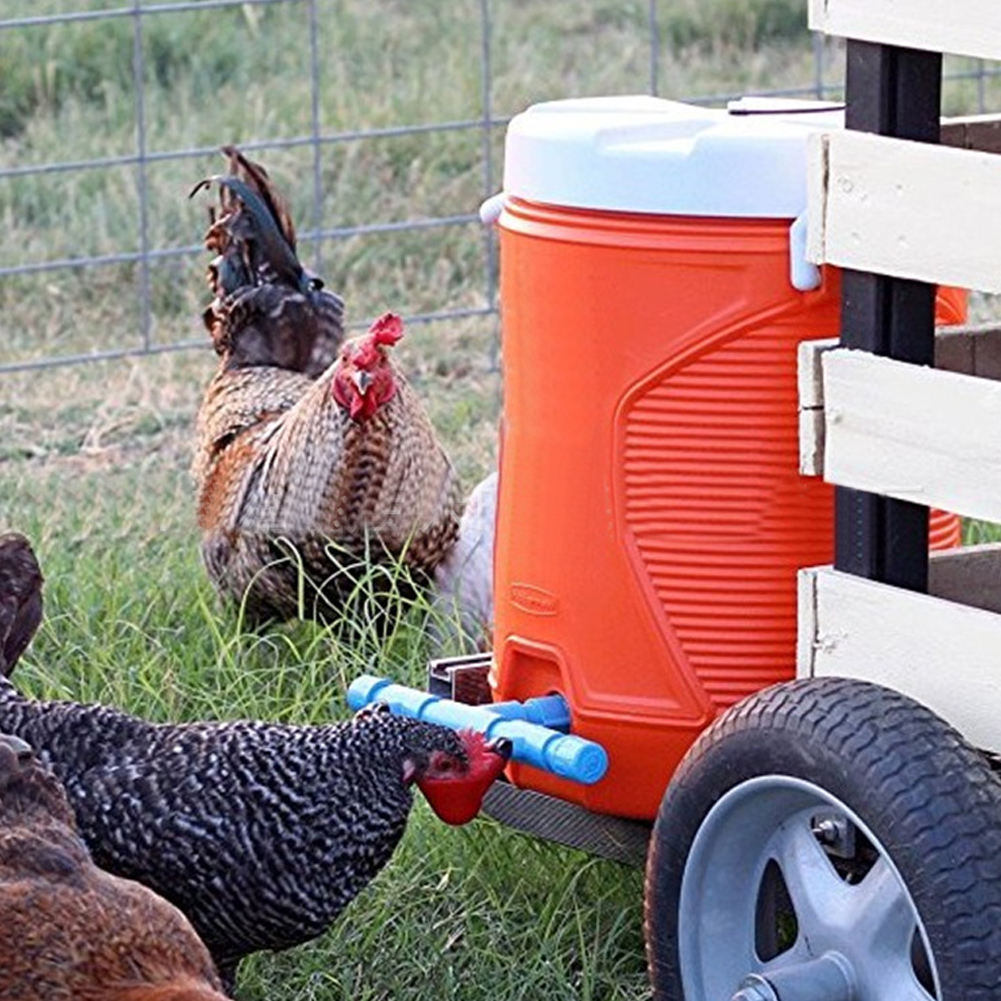Raising chickens is a rewarding experience, but it can also be daunting. One important aspect of chicken husbandry is providing clean, fresh water for your flock. A chicken water container is an essential tool for ensuring your chickens are well-hydrated and healthy. This article will explore the benefits of using a chicken water container, and how to select the right one for your needs.
Benefits of Using a Chicken Water Container
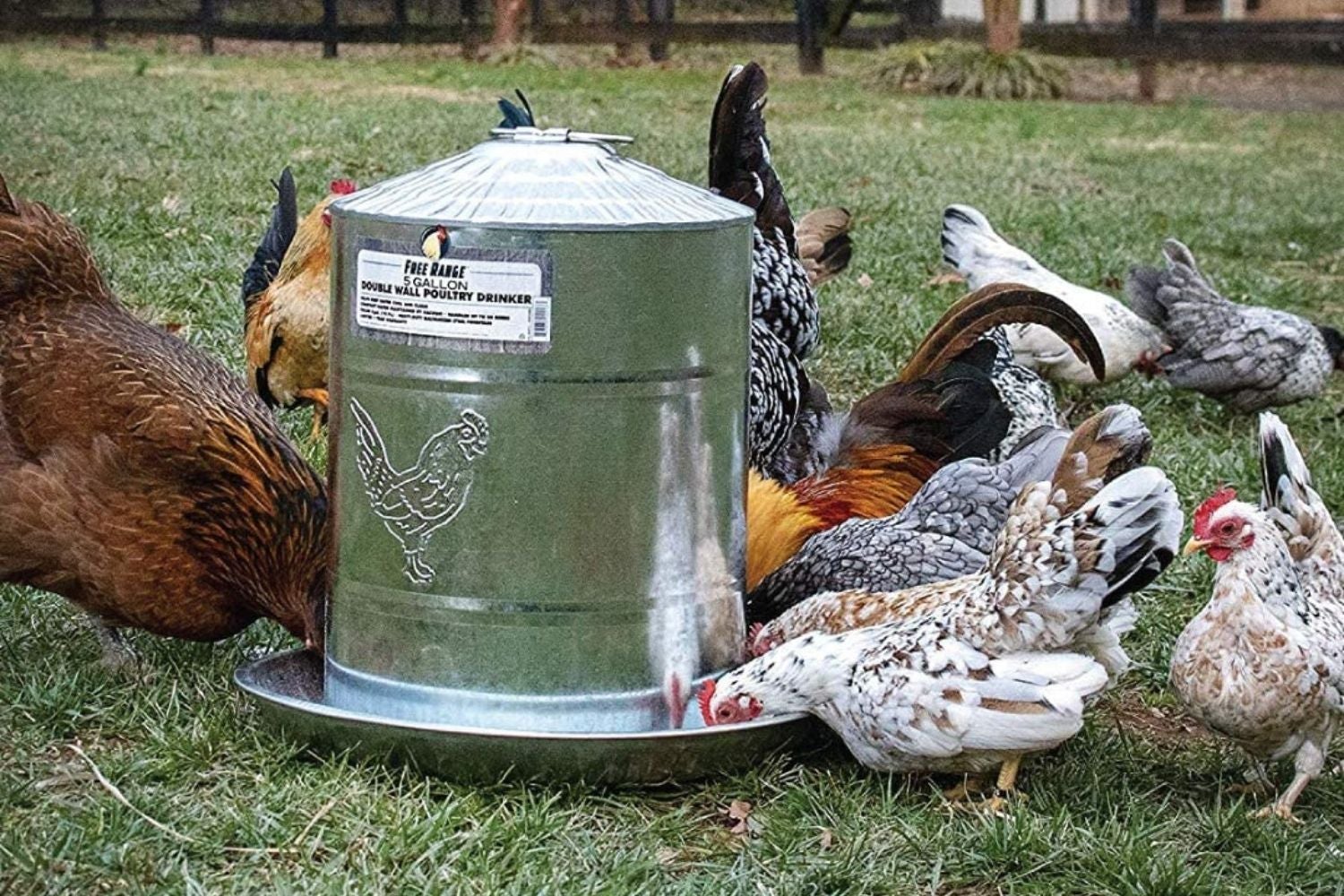
Accessibility
Using a water container for chickens provides easy access to water which can be beneficial to their health and wellbeing. Chickens need to remain hydrated and a water container can provide them with a clean and efficient source of water. This can help to reduce stress levels and improve their overall health.
Reduced Water Waste
Water containers for chickens can help to reduce water waste as the chickens will not be able to spill or scatter the water. This means that the water can be reused and the same amount of water can last for multiple days. This can help to reduce costs and conserve water.
Increased Hydration
Using a water container for chickens can also help to ensure that the chickens stay hydrated throughout the day. This can help to improve their overall health and reduce any risks associated with dehydration.
Improved Sanitation
Water containers for chickens can also help to keep the water clean and free from contamination. This can help to reduce the risk of any health problems in the chickens and keep them healthy.
Cleaner Water
Finally, using a water container for chickens can help to keep the water cleaner for longer. This can help to improve the chickens’ health and help to keep them hydrated.
Different Types of Chicken Water Containers
Automatic Waterer – An automatic waterer is a system that uses a float valve to keep water levels consistent. This means that chickens can drink whenever they want and there is no need to constantly check the water levels.
Manual Waterer – A manual waterer is a container that requires manual refilling. This type of waterer requires more frequent monitoring and is not as convenient as an automatic waterer.
Hanging Waterer – Hanging waterers are a great option for those with limited space. They can be hung from a wall or ceiling and they keep the water off the ground, which helps to reduce mud and mess.
Insulated Waterer – Insulated waterers are a great option for colder temperatures. They help to keep the water from freezing, which can be a major problem in cold climates.
Bucket Waterer – Bucket waterers are a simple and affordable solution that are easy to move around and keep clean. They are great for those on a budget and require minimal maintenance.
Ground Waterer – Ground waterers are an affordable solution and are great for those with limited space. They are easy to move around and keep clean, but they may require more frequent monitoring and refilling.
Recycled Waterer – Recycled waterers are a great way to repurpose items you may already have in your home. They can be made from anything from an old milk jug to a plastic container and can be a cost-effective solution for those on a budget.
Choosing the Right Chicken Water Container
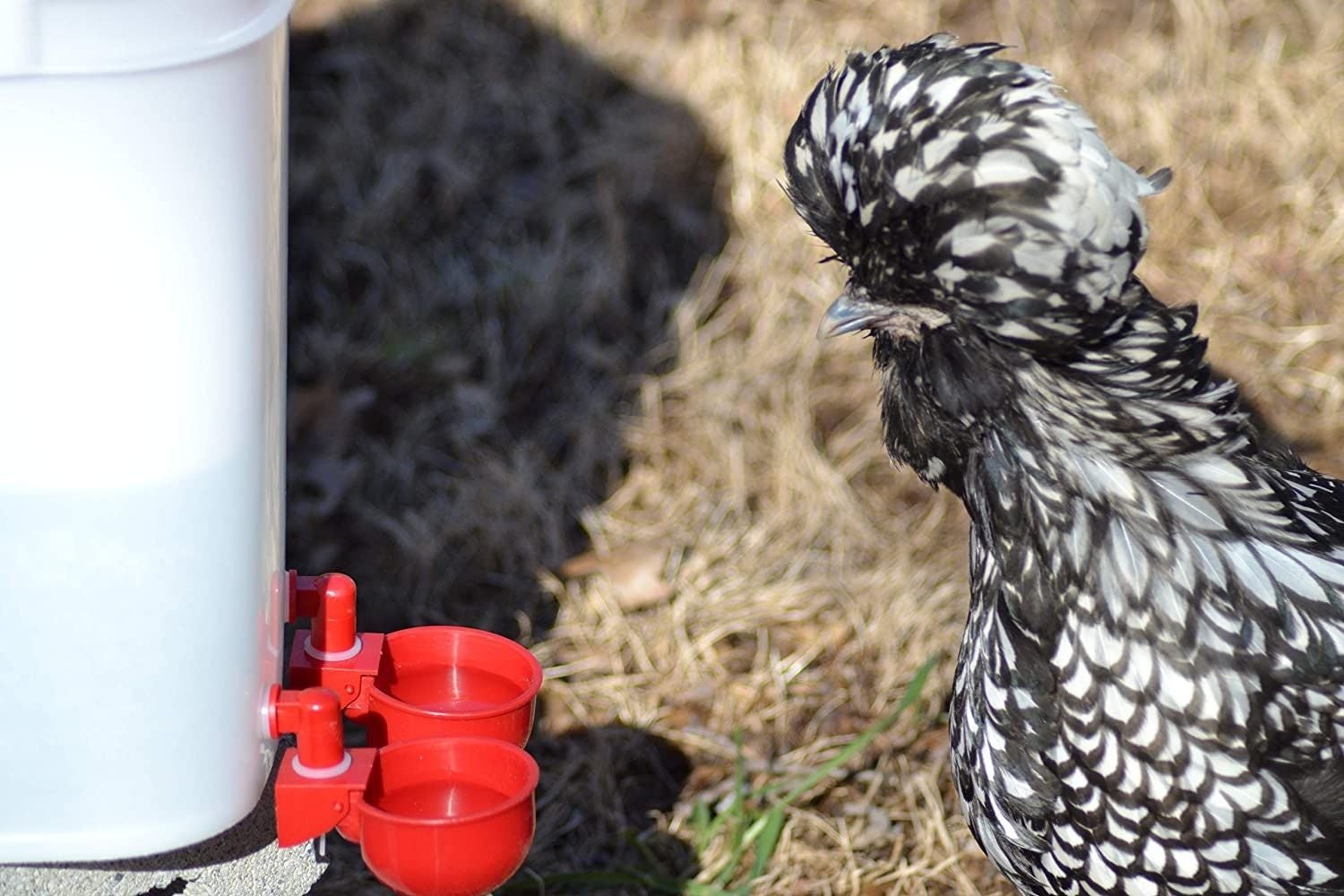
- Material: Choose a chicken water container that is made of durable material such as stainless steel or plastic that won’t rust or degrade over time.
- Size: The size of your chicken water container should be appropriate for the size of your flock. Smaller flocks should use smaller containers, while larger flocks may require larger containers.
- Design: The design of your chicken water container should be easy to clean, and should be designed in a way to deter contamination from chicken droppings and other sources.
- Capacity: Chicken water containers should have a large enough capacity to provide enough water for your flock, with some extra so that the water does not run out between refills.
- Accessibility: Make sure that your chicken water container is easily accessible for your chickens, and that it is placed in a spot where it will not be easily knocked over or contaminated.
- Location: Place your chicken water container in a shaded area, away from direct sunlight, to keep the water cool and prevent algae growth.
A chicken water container is an essential piece of equipment for any chicken coop, as it provides a safe and clean source of water for your flock. When choosing a chicken water container, it is important to consider the size, material, capacity, design, accessibility, and location of the container. By taking these factors into account, you can ensure that your chickens have a safe and clean source of water.
Installing the Chicken Water Container
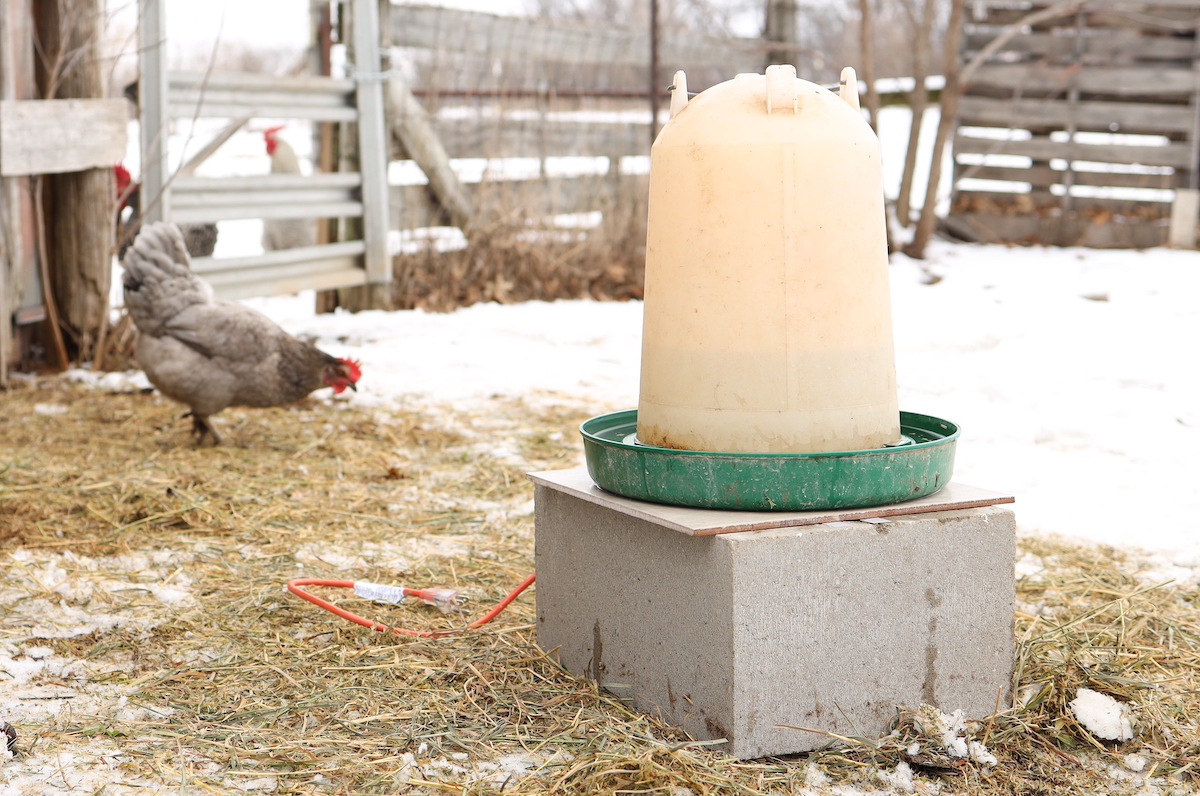
Having a water container specifically designed for chickens is essential for keeping them healthy and hydrated. These containers are designed to provide easy access to water and should be installed securely and correctly to ensure the chickens are safe and have access to clean water.
Step 1: Select a suitable container for your chickens. It should be big enough to provide enough water for your flock and should be made of an appropriate material such as stainless steel, galvanized metal, or plastic.
Step 2: Place the container in a secure location. Make sure it is in a shaded area, out of direct sunlight and away from any predators.
Step 3: Secure the container to the ground. This will help prevent it from being tipped over by the chickens or any other animals in the area.
Step 4: Install the water line. Connect the water line to the container and make sure the connection is secure.
Step 5: Fill the container with clean water. Change the water regularly to keep it clean and free from bacteria.
Step 6: Check the container regularly and make sure the chickens have access to clean water at all times.
Step 7: If necessary, adjust the height of the container to ensure the chickens can reach the water easily.
By following these steps, you can ensure that your chickens have access to clean water and remain healthy and hydrated.
Maintaining the Chicken Water Container
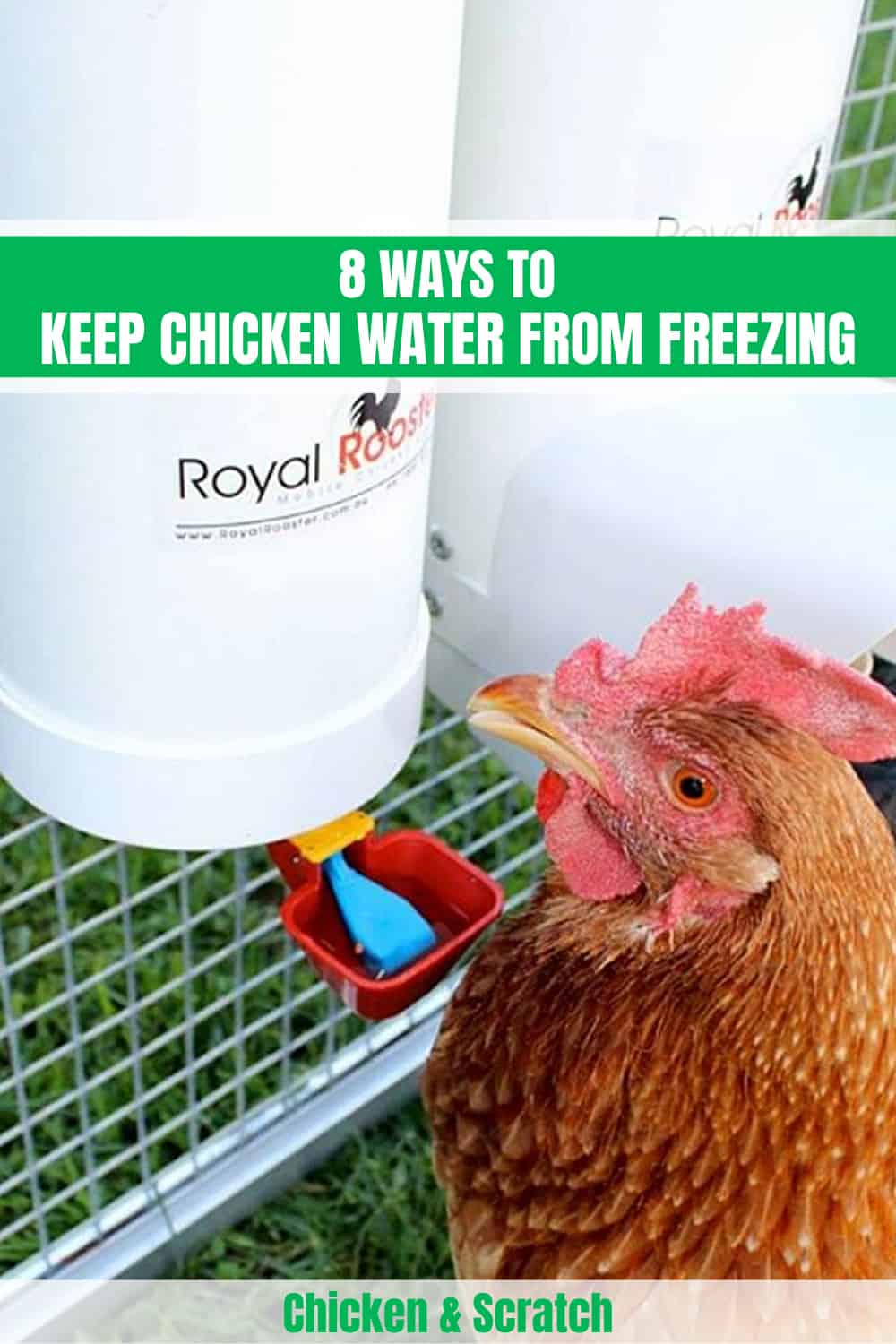
- Cleanliness: Water containers should be emptied, washed, and refilled with fresh water daily. If the water is dirty or smells bad, it should be changed more frequently.
- Temperature: It is important to keep the water container in a cool and shaded area. If the water is too hot or cold, the chickens will not drink it.
- Capacity: The capacity of the container should be appropriate for the number of chickens that will be using it. If the chickens do not have enough water, they may become dehydrated.
- Accessibility: The container should be placed at a height that allows the chickens to reach it easily. If the chickens have difficulty accessing the water, they may not drink enough.
- Protection: The container should be covered to protect it from the elements and from other animals that may be able to access it. This will help ensure that the water remains clean and uncontaminated.
Feeding the Chickens
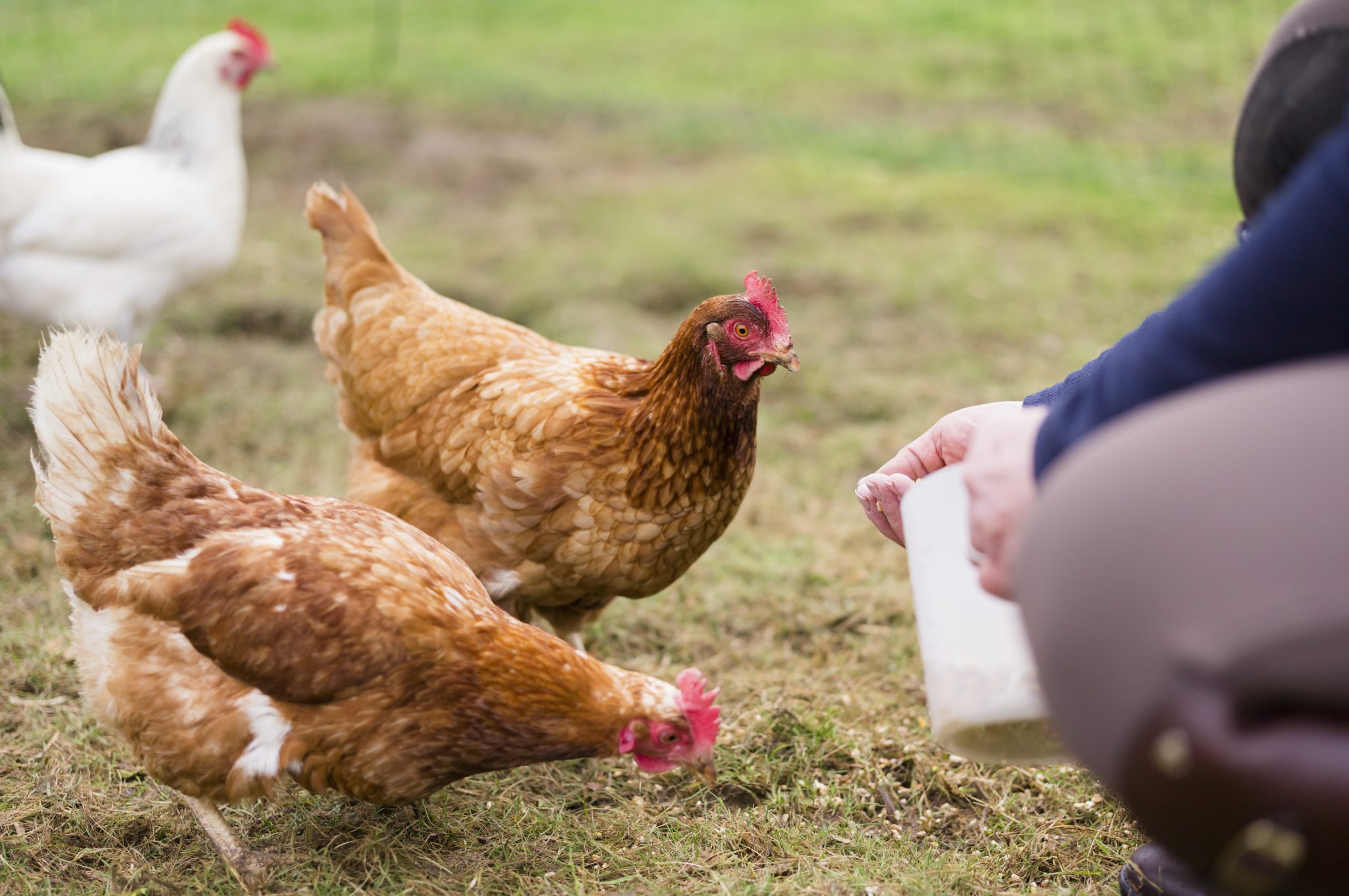
Providing Adequate Nutrition
- Include a balanced diet of grains and proteins.
- Provide supplemental vitamins and minerals.
- Offer fresh fruits and vegetables.
- Provide grit and oyster shell for strong eggshells.
Learning the Art of Feeding
- Know the age of your chickens.
- Understand your chickens’ nutritional needs.
- Purchase quality feed.
- Keep the feeders clean.
Storing the Feed
- Store feed in a cool, dry place.
- Discard any feed that has gone bad.
- Seal the container when not in use.
Monitoring the Chickens
- Observe the chickens daily – Check for any signs of illness, injury, or parasites. Look for any changes in behaviour and health.
- Perform regular health checks – Check your chickens for signs of mites or lice, and treat them if necessary.
- Provide the right amount of food and water – Make sure your chickens have access to food and water at all times.
- Keep the coop and yard clean – Clean the coop of debris and manure regularly, and dispose of any spilled feed or water.
- Monitor the temperature – Ensure the temperature inside the coop is not too hot or too cold.
- Check for signs of predators – Watch for signs of predators such as foxes, snakes, or birds of prey, and take action if necessary.
Frequently Asked Questions
What are the main benefits of using a chicken water container?
Durability: Chicken water containers are typically made of hard plastic that can withstand the elements and last for many years. Convenience: A chicken water container can be hung up high in the coop, making it easy to fill and clean. Protection: The container keeps the water clean and free of debris, while also reducing the chances of predators getting access to the water. Sanitation: The container is easy to keep clean and free of bacteria, which can be a problem with open water sources.
Can I use a regular water container for my chickens?
No: Regular water containers can be dangerous for chickens as they can easily tip it over and cause a mess. They can also get their heads stuck in the container and suffocate.
Yes: If you would like to use a regular water container for your chickens, you should look for one that is made specifically for chickens with a wide opening and a low center of gravity to prevent tipping.
- Attach the water container to the wall to prevent it from tipping
- Choose a container with a wide opening to prevent your chickens from getting their heads stuck
- Provide a lid to prevent dirt and debris from getting into the water
- Use a container that is made of non-toxic materials
Using a chicken water container is the best way to ensure that your chickens have access to clean, safe water. Chicken water containers are specially designed to prevent tipping and to provide your chickens with easy access to water. They also come with a lid to help keep dirt and debris out of the water.
How Often Should I Clean Out the Chicken Water Container?
Daily: The water container should be emptied, cleaned, and refilled with fresh water every day. This prevents any build-up of dirt, debris, or bacteria that could harm the chickens.
Weekly: The container should be sanitized once a week using a mild bleach solution. This ensures that any bacteria or dirt that may have been missed during the daily cleaning process is eliminated.
- Fill the container with a solution of 1 part bleach and 10 parts water.
- Let the solution sit for a few minutes before rinsing thoroughly.
- Allow the container to air dry before filling with fresh water.
Monthly: Once a month, the container should be inspected to ensure that it is in good condition. Look for signs of rust, cracks, or holes. If any are found, replace the container as soon as possible.
How can I keep the water in the chicken water container from freezing in winter?
To prevent water from freezing, the water container should be insulated or heated. Insulation can be done with a simple cover or by using specially designed insulated containers. Heated containers, such as heated buckets and bowls, are also available and can be used to keep water from freezing, even in cold temperatures. Additionally, adding a heater to the water container can also help keep the water from freezing, such as a floating de-icer or a submersible heater. Lastly, adding warm water to the container on a regular basis can also help prevent freezing.
What materials are chicken water containers typically made from?
Chicken water containers are typically made from durable and lightweight materials, such as:
- Plastic
- Metal
- Ceramic
- Glass
Plastic containers are usually the most cost-effective choice and also the most common. They are lightweight, durable, and can be easily cleaned. Metal containers are heavier, but also more durable and can handle harsher environments. Ceramic and glass containers can be more aesthetically pleasing, but are also more fragile and require more care.
Conclusion
Chicken water containers are essential for efficient chicken husbandry. They help contain water and provide clean and accessible water for chickens to drink. They also save time and energy by eliminating the need to change buckets or refill water containers as often. In addition, these containers can help protect chickens from predators and allow them to stay hydrated and healthy.
